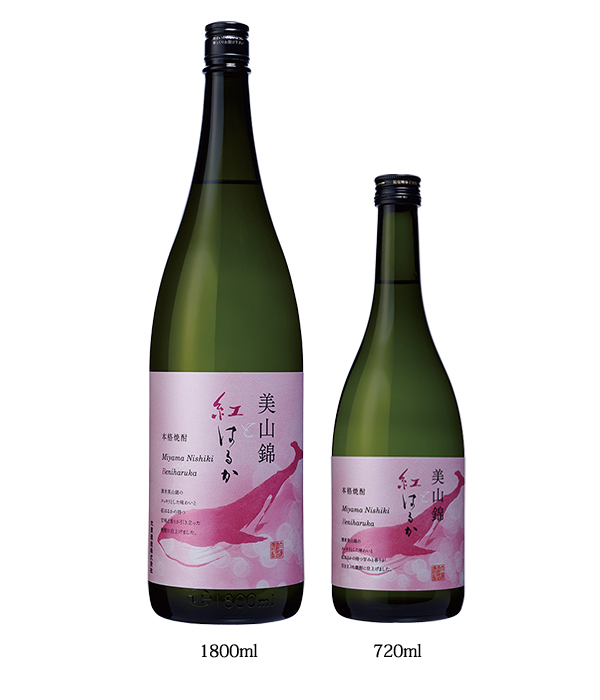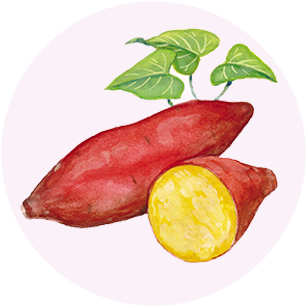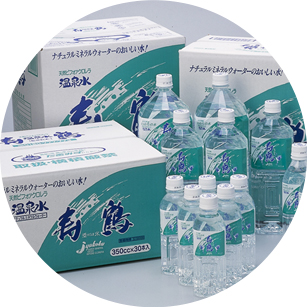Product Information
Sweet potato shōchū (standard)
Miyama-Nishiki To Beni-Haruka(Miyama-Nishiki and Beni-Haruka)

A shōchū made using the beni-haruka sweet potato which has the highest sugar content among the beni sweet potatoes, as well as white kōji and miyama nishiki rice. Miyama nishiki rice is especially suitable for making alcohol. Using kōji on high-quality rice brings out the gentle taste of the beni-haruka. Please enjoy it on the rocks or mixed with hot water.
- Classification
- Authentic shōchū
- Alcohol volume
- 25%
- Ingredients
- Sweet potato (beni-haruka), malted rice (miyama nishiki)
- Kōji
- White kōji
- Distillation method
- Atmosphere distillation
- Bottle
- 1800ml/720ml
Aroma/Taste scale

Drinking temperature

For the best drinking experience
Mixed with 10°C or lukewarm water, on the rocks or with soda.
Sweet potato
Beni-haruka
We use beni-haruka from Mr. Atsuo Nagashige’s fields (he is a member of Taikai Shuzo sweet potato cooperative). In 2008 it was designated as Kagoshima Prefecture’s recommended variety and is expected to become Kanoya’s brand. Its skin is purplish-red while the inside has a cream color. It is a variety with a sweetness that will not lose to the an’no kogane sweet potato which has high sugar content. It was called beni-haruka because its taste, appearance, and such, far exceeded other varieties (haruka meaning “by far” in Japanese).
Water used
Jukaku hot spring water
Sakurajima is one of Japan’s most active volcanoes.Looking up to it, is the city of Tarumizu where jukaku water gushes forth from 800m underground. It contains 8.89ppb (parts per billion) of water-soluble germanium which is a hundred times more than the average.
Water-soluble germanium can also be found in plants such as ginseng, reishi mushrooms, polypores, or garlic and has been used for the longest time to maintain health. Natural alkaline ionized water, jukaku, is also rich in natural minerals and is known to have excellent penetrating and extracting power due to its unusually small molecular structure.

LinkJukaku Web site


































